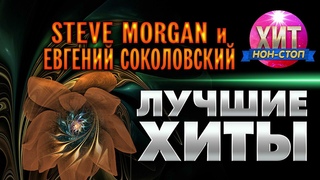The Sound of the Manchu language (Numbers, Sentences & Phrases)
Welcome to my channel! This is Andy from I love languages. Let’s learn different languages/dialects together. I created this for educational purposes to spread awareness that we are diverse as a planet. Please feel free to subscribe to see more of this. I hope you have a great day! Stay happy! Please support me on Patreon!
If you are interested to see your native language/dialect to be featured here. Submit your recordings to crystalsky0124@. Looking forward to hearing from you!
Manchu (ᠮᠠᠨᠵᡠ ᡤᡳᠰᡠᠨ) manju gisun
Native to: China
Region: Manchuria
Ethnicity: 10.7 million Manchus
Native speakers: 20 (2007)
Thousands of second language speakers
Language family: Tungusic
is a critically endangered Tungusic language spoken in Manchuria. As the traditional native language of the Manchus, it was one of the official languages of the Qing dynasty (1636–1911) of China and in Inner Asia, though today the vast majority of Manchus now speak only Mandarin Chinese. According to data from UNESCO, there are 19 native speakers[citation needed] of Manchu out of a total of nearly 10 million ethnic Manchus. Now, several thousand can speak Manchu as a second language through governmental primary education or free classes for adults in classrooms or online.
The Manchu language enjoys high historical value for historians of China, especially for the Qing dynasty. Manchu language texts supply information that is unavailable in Chinese and when both Manchu and Chinese versions of a given text exist they provide controls for understanding the Chinese.
Like most Siberian languages, Manchu is an agglutinative language that demonstrates limited vowel harmony. It has been demonstrated that it is derived mainly from the Jurchen language though there are many loan words from Mongolian and Chinese. Its script is vertically written and taken from the Mongolian script (which in turn derives from Aramaic via Uyghur and Sogdian). Although Manchu does not have the kind of grammatical gender found in European languages, some gendered words in Manchu are distinguished by different stem vowels (vowel inflection), as in ama, “father“ VS eme, “mother“.
LINKS:
满文
Music:




![Romania Nature: 26 Minutes of Visual Therapy 🌄🏰🌿 [8K UHD]](https://sun9-33.userapi.com/Q0asIpXKq9N9rlpKZvzG8Lq7cYCOaNZCnPMiLA/iNZuJh2Y8HM.jpg)

![LORN - ANVIL [Official Music Video]](https://sun9-16.userapi.com/XB1Vvasn058ZGO6hxcHNl4wl5R_rG8MHnKY-6w/1lEMzuJdr-E.jpg)
![Leftlow - Ones And Twos [ premiere]](https://sun9-35.userapi.com/fGZ2FmvkvCoO6Biwc3Bv3hN_zRKoDxVDl6t93g/iZd0Lc0q07I.jpg)















